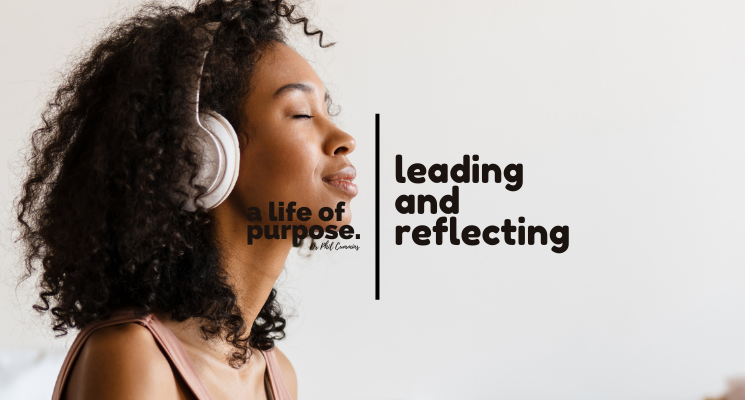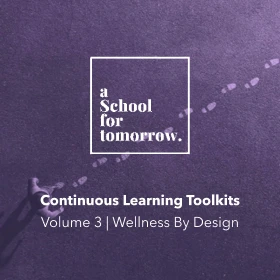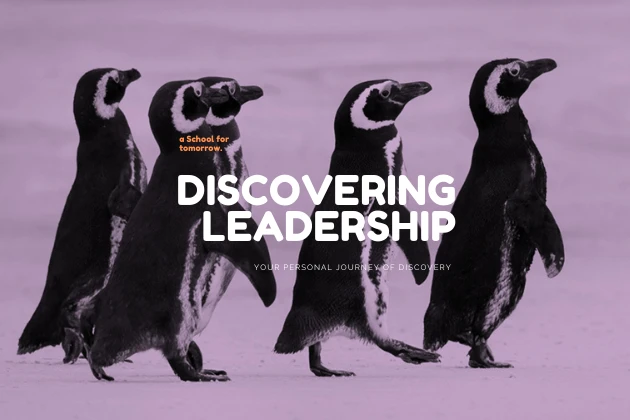
Dr Phil Cummins
Aug 29, 2022 | 2 minute read
Lead: Leading and Creating
We teach who we are. It’s the same with our leadership. When we lead from the core of our being, it rubs off on those around us.
Promotion
a School for tomorrow's
Community Membership
Come together in our global community of innovative, like-minded people and help create the future of education.
Join CommunityThe global research program of our research institute CIRCLE - The Centre for Innovation, Research, Creativity and Leadership in Education confirms for us a simple proposition that holds true in classrooms everywhere: we teach who we are. It’s the same with our leadership. When we lead from the core of our being, it rubs off on those around us.
Thus, the character of our teams and institutions will come to resemble our own character over time. So, if we are reflective, then we will teach others how to reflect. If we are comfortable with surrendering control, then we'll teach others to thrive as game changers in a time of change without the expectation of absolute order and predictability.
But, we need to go further than this.
To change the game of school, we need to be able to fundamentally think and rethink about what we do and how we do it. We need to create, just as much as we need to administer. If we ourselves are creative and innovative, then not only will we have an understanding of the way that creativity works, we can teach it to others.
I’ve learned a few things about the process of creativity that I use in my own work as a writer and leader and educational designer:
- Do your homework: I need to learn everything I can about the field in which I seek to create so that I am approaching it with a clear knowledge and understanding about what has come before and be well placed to think about what might come next.
- “Leave me alone”: I need freedom from distraction and interruption so that I can prepare myself, focus on my own thoughts, and generate ideas that could prove to be of interest and relevance.
- Wander and wonder: I need to feel as though I can explore possibilities and ask questions about what might come next and what might be different without any negative reaction or threat of adverse consequence.
- Trust the process: I need to follow my instinct about my own fresh ideas down rabbit-holes and not worry about their feasibility until the process tells me it is time to test their validity and workability.
- Iterate or improve: I need to feel very comfortable not coming up with an idea from scratch but rather taking somebody else's idea and adapting it to a new context or purpose, or maintaining its current application but improving its impact relative to the outcomes I want to achieve.
- Evolve and capture: I need to be allowed initially to work to a loose timeline and with minimal requirements for paperwork, drawing up solutions in detail only when I know that they work and are ready to be shared.
- Come back later: I need to be able to leave an idea or thought half-formed and pick it up again later when time and resources allow me to bring it to fruition.
- Test, tinker, trash: I should be encouraged to develop and test in the field prototypes, models and hypotheses, recording my findings and observations as I go, before implementing in scale only those things that work.
- Tell the story: I need to be allowed to find my own voice, agency and advocacy in the project at hand and should be expected to create a narrative of the journey of exploration, encounter and discovery which I pass on to others.
- Complete – never finished: I need to feel permission to treat every solution as a necessarily incomplete work in progress that will benefit from further iteration and experimentation to improve its effectiveness and suitability over time
I’ve also learned that I need to model for those around me both this process of creativity and the mindset and method of research to which I spoke earlier in order to demonstrate that what we value at a School for tomorrow. and within our network is an openness and willingness to learn continuously about both the journey and the destination ahead.
What’s your own process to remain forever curious and creative as a school leader?
Related Content

Article
Lead: Leading and Reflecting
Products & Services
Discover our Continuous Learning Toolkit Volume 3: Wellness By DesignDetails on our publications page
Like what you’ve read?
Let’s keep the conversation going.
